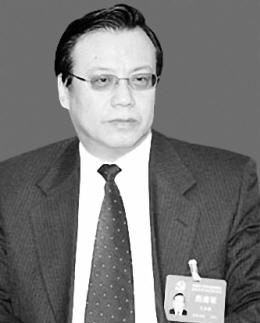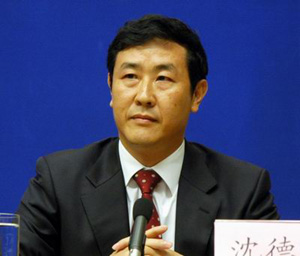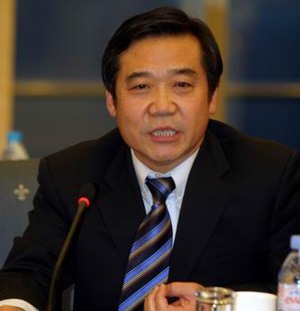| Home / Government / Focus News | Tools: Save | Print | E-mail | Most Read |
| 4 New Anti-Graft Chiefs Elected |
| Adjust font size: |
China's central government has seen its own officials elected to anti-graft posts in four key cities, reversing the past practice that saw local officials promoted to those jobs. At Tianjin's party congress which concluded on June 2, Zang Xianpu, formerly an official with the Chinese Communist Party's (CPC) Central Committee, was elected Secretary to the Commission for Discipline Inspection (CDI) of the northern port city.
Zang Xianpu, Secretary to the CDI of Tianjin Municipality Zang is the fourth newly-elected anti-graft chief in the four provincial-level municipalities to have formerly worked for the central government. "It sends such a message that the new discipline watchdog chiefs will no longer be tied to local officials," said a commentary on the government-run website People.com.cn. "The key is to ensure the independence of discipline watchdogs." These anti-graft chiefs who have been "parachuted in" will have more leeway to investigate corruption as they are less likely to be influenced by local interest groups, an analyst said. In September 2006, China began to reshuffle its party leaders in all its provinces, municipalities and autonomous regions in the run-up to its national party congress this autumn. The discipline watchdog chiefs in Beijing, Ma Zhipeng, and in Shanghai, Shen Deyong, are both former members of the Standing Committee of CDI's Central Commission for Discipline Inspection. In Chongqing, Xu Jingye, was former discipline inspection chief of the Ministry of Commerce.
Ma Zhipeng, Secretary to the CDI of Beijing Municipality
Shen Deyong, Secretary to the CDI of Shanghai Municipality
Xu Jingye Secretary to the CDI of Chongqing Municipality The four officials will serve five-year terms, according to the Party's election law. The newly elected discipline watchdog chiefs will also not concurrently hold the post of vice party secretary of the municipalities' CPC committee as they have in the past, giving them a freer hand to deal with corruption. (Xinhua News Agency June 13, 2007) |
| Tools: Save | Print | E-mail | Most Read |
| Related Stories |
|
|
||||||||||||
|
| Links | |||||||||||
|



